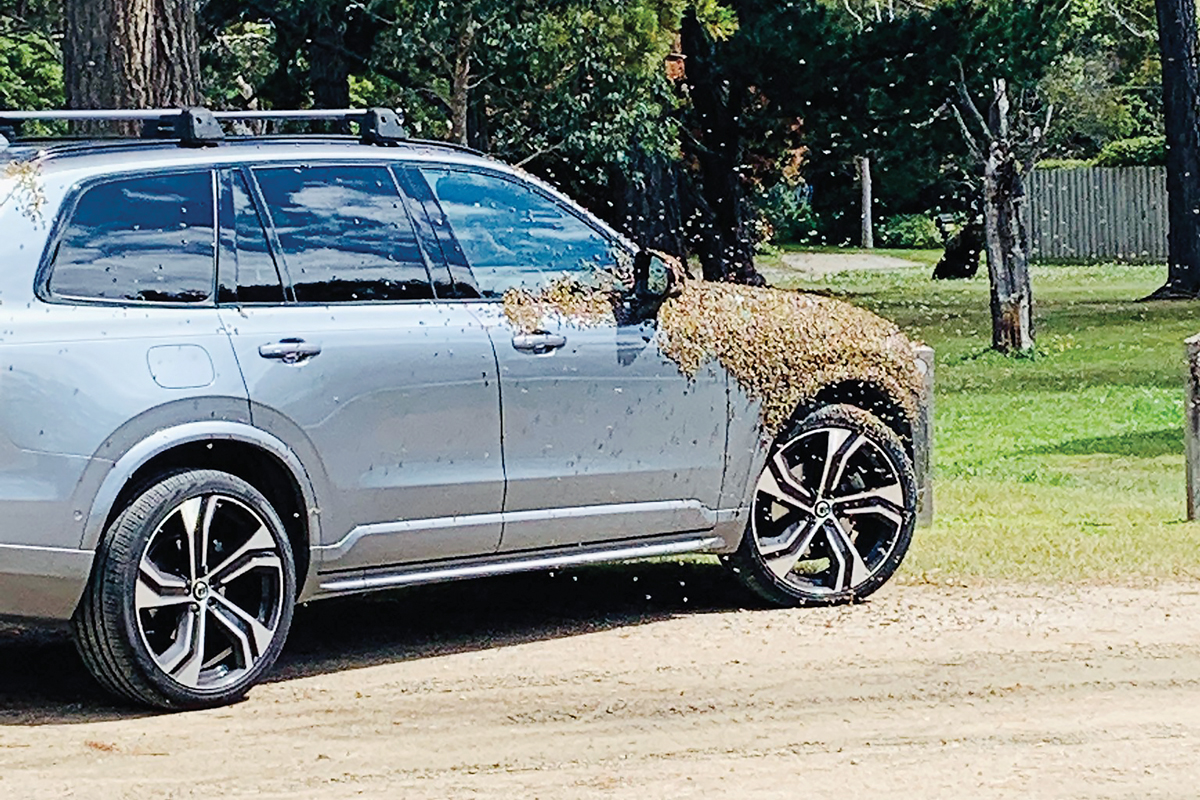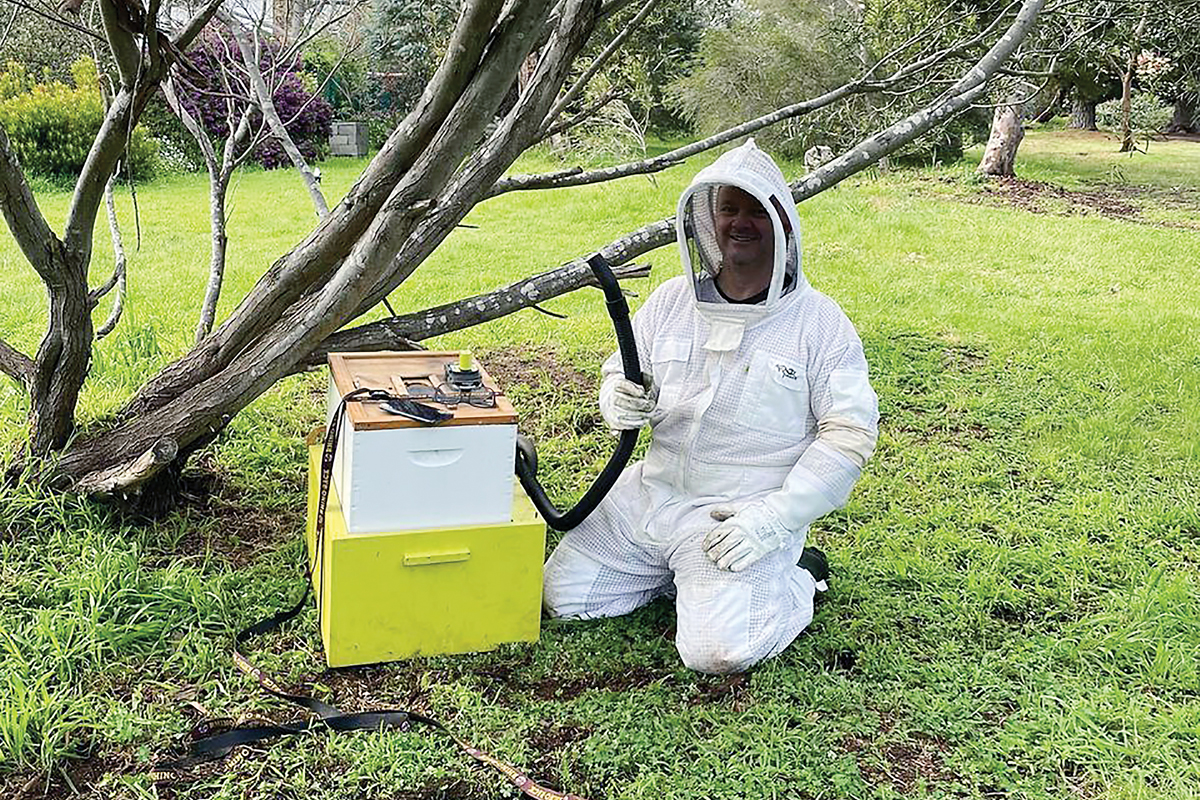IT’S not surprising that there has been a lot of bee activity around the Mornington Peninsula lately, with spring being the busiest time of the year for the pollinating insects.
Just like many other living creatures, bees spend this time of the year restocking on food, as well as starting new colonies and moving around to find new territory.
But there is no reason to panic, according to Mount Eliza beekeeper Christopher Watson, who says bees are generally placid and deserve human respect for the benefits they bring to the environment.
Watson only became interested in beekeeping a few years ago but is now one of the peninsula’s go-to guys when it comes to wayward hives that turn up somewhere unexpected.
“I turned 50 a few years ago and my wife told me to get a bike. I never got around to doing that, but I did get a beehive instead,” he said.
“It keeps me active and it gets me outside, and I love nature and the garden.”
Watson says he feels that bee keeping is also a kind of community service, where he is able to help people with advice when they find bees in their gardens or can safely relocate bees that turn up in public spaces.
Bees are one of the world’s greatest pollinators and essential to agricultural and home garden sectors and, without them, the world would be in big trouble, says Watson.

So far this spring he has been called out to around 40 swarms, with some ending up in his own collection of hives after they have been quarantined.
Watson, who has a “day” job, says it has been a particularly busy year for bee handlers, with the weather and proliferation of food increasing bee numbers. He estimates he might have tens of thousands of bees himself, with four hives at his home and others “dotted around the peninsula”.
Watson is part of the estimated (and still growing) 7600 hobby and commercial beekeepers in Victoria.
“I feel that by keeping bees I’m doing something for the ecosystems, but I also love to watch their activity, it’s a lovely hobby,” he said.
“Funnily enough I’m the only one in my family who likes honey.”
But it’s not all honey and biscuits in the beekeeping world, says Watson.
Good beekeeping requires a lot of management, and a healthy hive is no accident.
Watson says swarming hives can be a sign of poor hive management, and beekeepers are required to follow a strict code of conduct to ensure hives are healthy and safe.
Good beekeeping practices include regular inspections of brood and honey combs for honey bee diseases and pests, and there are requirements for beekeepers to only keep hives that have easily and individually removable frames.
Anyone who keeps one or more hives of bees is required to register with the agriculture department, and there are state laws to guide and police the industry (including amateur beekeepers). There are also federal laws relating to biosecurity and other beekeeping requirements.
For information on beekeeping contact the agriculture department or the Victorian Apiarists’ Association.




